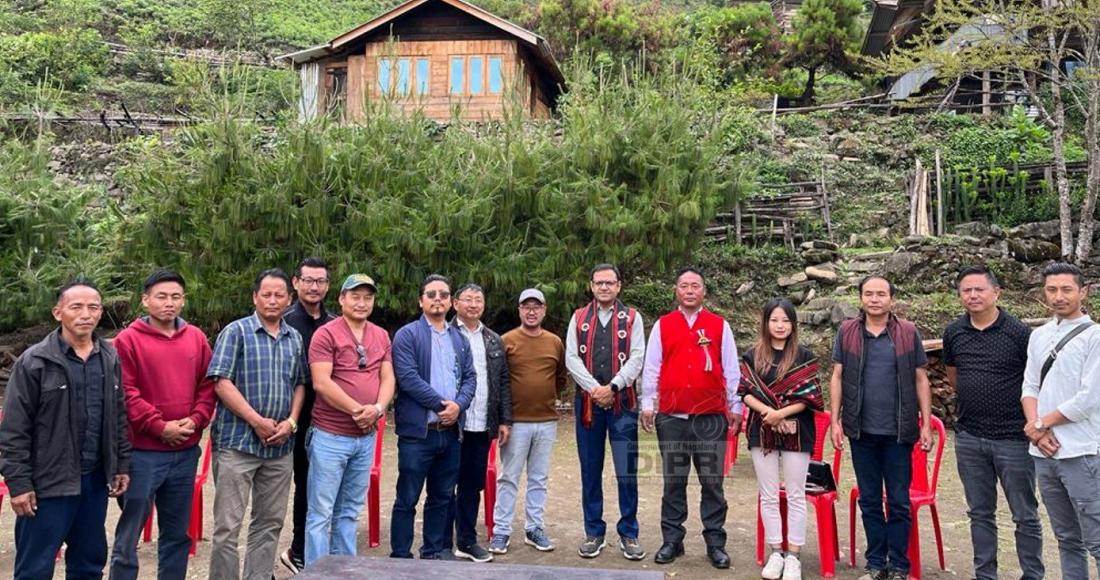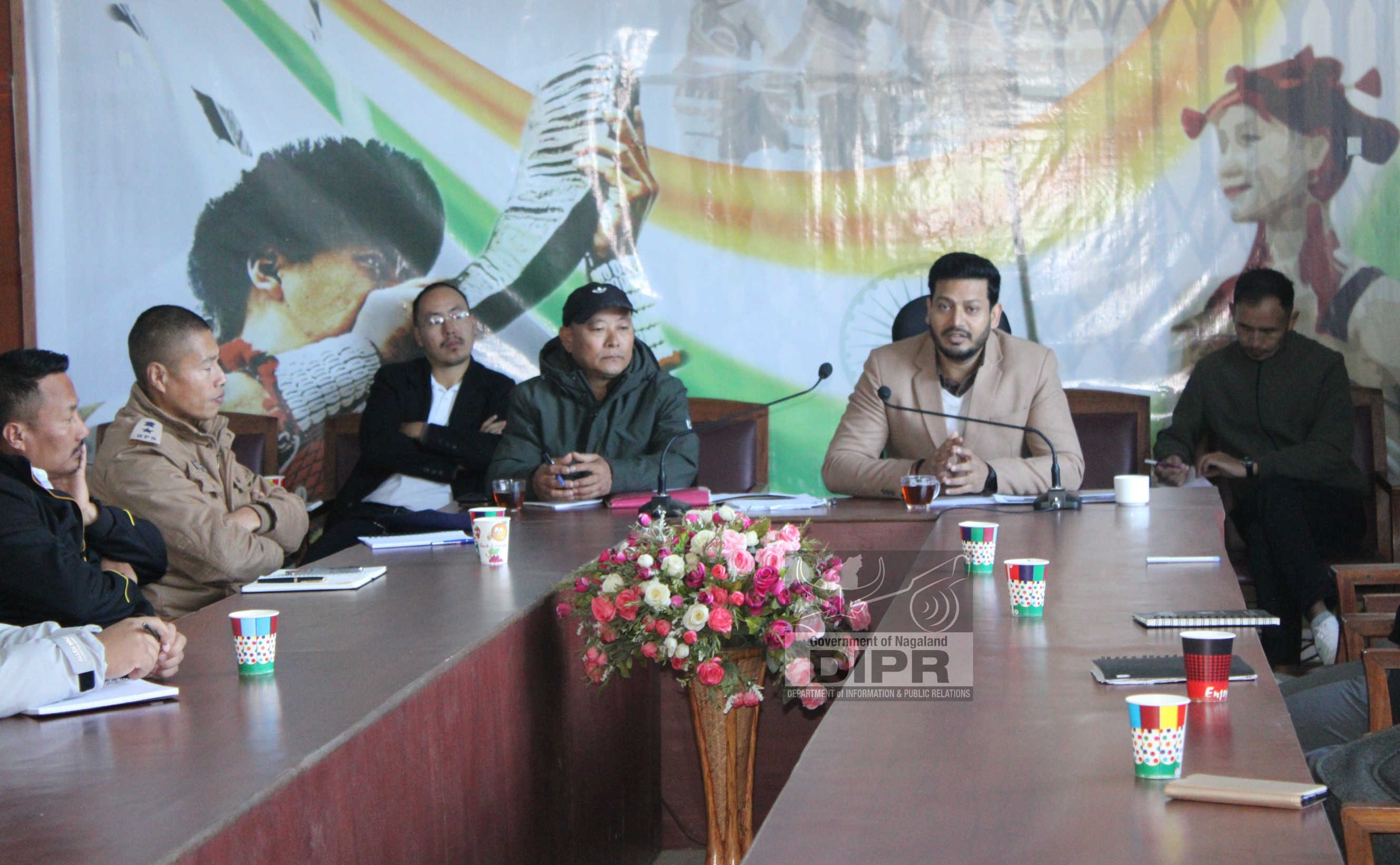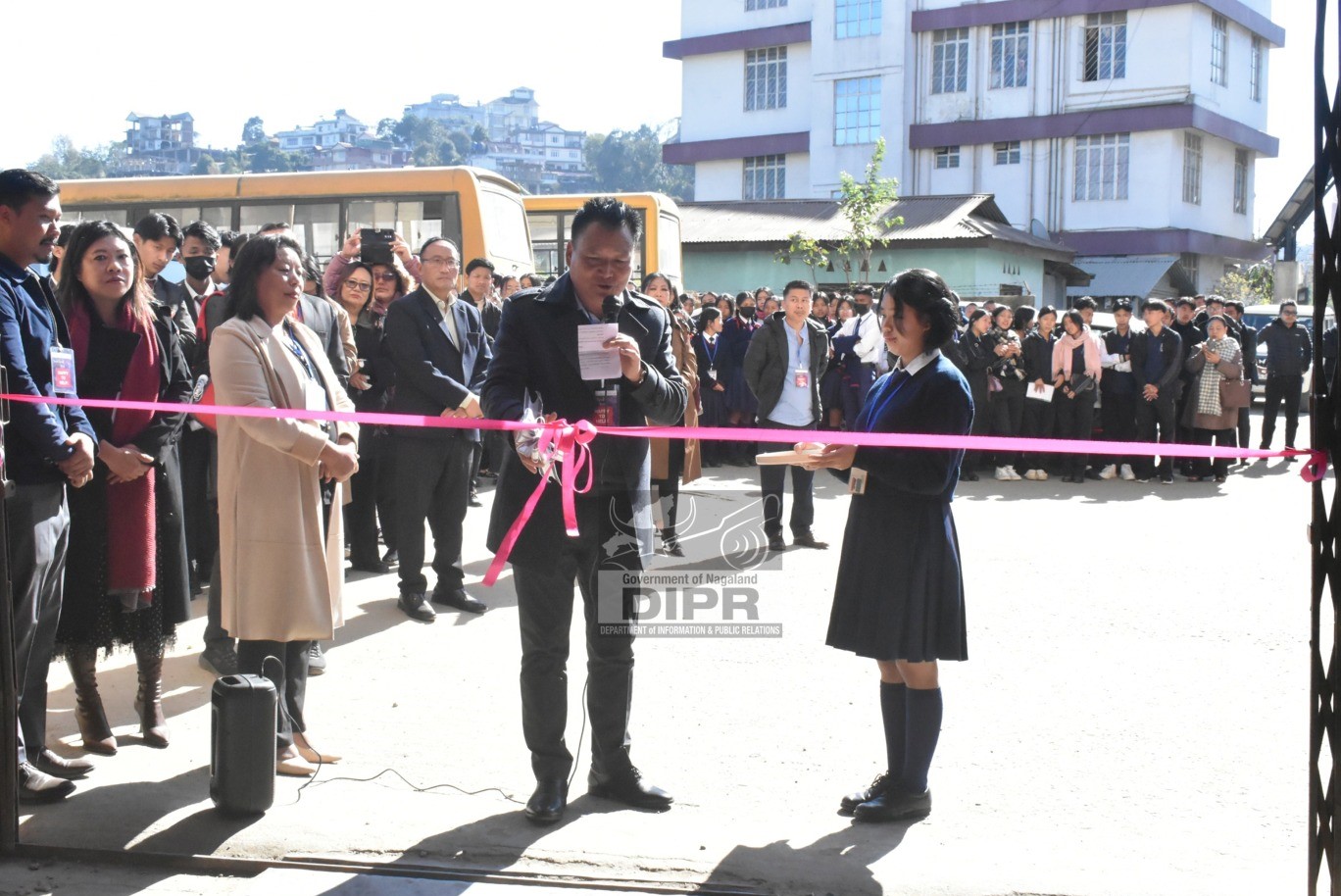Rahul Jain, IAS, Joint Secretary DIPAM, Ministry of Finances, Government of India visited Zunheboto from 24-26 May 2023. He was accompanied by Anenuo Pienyu, Scientist-C, CGWB Ministry of Jal Shakti. Their main purpose of the visit was to give inputs for the effective implementation of Jal Jeevan Shakti.
On the first day i.e. 24th May the Joint Secretary had a meeting with the Deputy Commissioner and all the departments associated with Jal Jeevan Shakti at DC's Conference Hall. A PowerPoint presentation was presented by the Nodal Officer and Executive Engineer Water Resource Department about the percentage of work is done, how much remains to be done, how much water is received from the spring water source and what are the plans for collecting water from the new sources in the next stage. The Joint Secretary applauded the way Jal Jeevan Shakti is being implemented by the Water Resource Department staff and also by the percentage of works completed and further requested them to complete the work i.e. water connection to every household as soon as possible or as targeted i.e. December 2023. He also advised the concerned department to try and strengthen the spring water source and make it in such a way that there is no shortage of water even in dry periods and also added that any expenses borne out of strengthening the source will be covered by the Jal Jeevan Mission.
On the second day i.e 25th May, the Joint Secretary along with the various department officials visited the various spring water sources and also interacted with the villagers, Village Councils, and village GBs asking them if water is brought to their homes through the Jal Jivan mission and if they had any problems with it. They visited Khetoi, VK, and Nitokhe block, Aghunato town, Kelto village, Kitami village, Satami and Surumi under Suruhoto, Askhomi village under Zunheboto and also visited Jal Shakti Kendra at Zunheboto. During this visit, they were able to see the various spring water source, minor irrigation work done by the Water Resource Department under the NABARD scheme, Amrit Sarovar at Surumi, and the recently completed Amrit Sarovar at Asukhomi village, and the renovation of village pool at Asukhomi village under MGNERGA.
On the third day i.e. 26th May, the Joint Secretary had a meeting with the Deputy Commissioner and all the departments' office heads associated with Jal Jeevan Mission at Conference Hall. The Joint Secretary said that due to difficult terrain, they could not visit every source or location but thanked the officials for showing various water sources and works being done. He said that since Jal Jeevan Shakti is a convergence model on which the whole water conservation activities are working everywhere including Zunheboto, so as a convergence model all the departments should have good coordination among themselves. He added that for a good water body, the two important things are good water inlet i.e by creating or making a good water inlet it will be very good to sustain those water bodies and so water inlets are very important and wastewear is also very important so that when water is filled beyond its capacity, it can drain out. He also instructed the departments to put signages which shows clear measurement and the name of the schemes.
To the PHED department, the Joint Secretary asked them to identify the water state sources of water supply schemes under the Jal Jeevan Mission or 15th finance commission, and a proposal to strengthen water sources wherever required may be taken up for approval in the Jal Jeevan Mission scheme. He also said that community participation in the Jal Jeevan mission is very important and operation and management for running water supply schemes with monthly collection from users' households is very important it can be seen that in some villages the GBs mentioned the collection of 20 to 30 rupees per households and so the department has to highlight this community participation in multiple platforms through media and also through Jal Shakti Kendra. The Joint Secretary also directed the department to monitor water quality at the source and also at households at regular intervals with proper Record Keeping.
To Rural Development Department, he informed that the government has relaxed the one-acre norms for all North East States and so encouraged them to identify more and more water bodies as Amrit Sarovar as the government has targeted that by 15th August there should be at least 75 Amrit Sarovar in every district. He also instructed that Amrit Sarovars should be built properly and should be very sound with clear inlets and wastewear.
To the Forest Department, the joint secretary advised them to encourage the people to make rooftop rainwater harvesting structures and if possible in making so by even supplying them with materials. He further added that the department can highlight the food model by initiating rooftop water harvesting structures at Government buildings.
The Joint Secretary said that the government of India will be continuously monitoring how many recharge structures are constructed or strengthened, the number of Springs rejuvenated or revived, how many sources are geotagged, etc and reminded that planning and also the construction of works are to be completed before 30th June, Amrit Sarovar to be completed before 15th August and there will be verification of the source and works on October and special Gram Sabha for validation from the community on November. Lastly, he said that the central team will be visiting post-monsoon.
(DPRO & IA Zunheboto)




